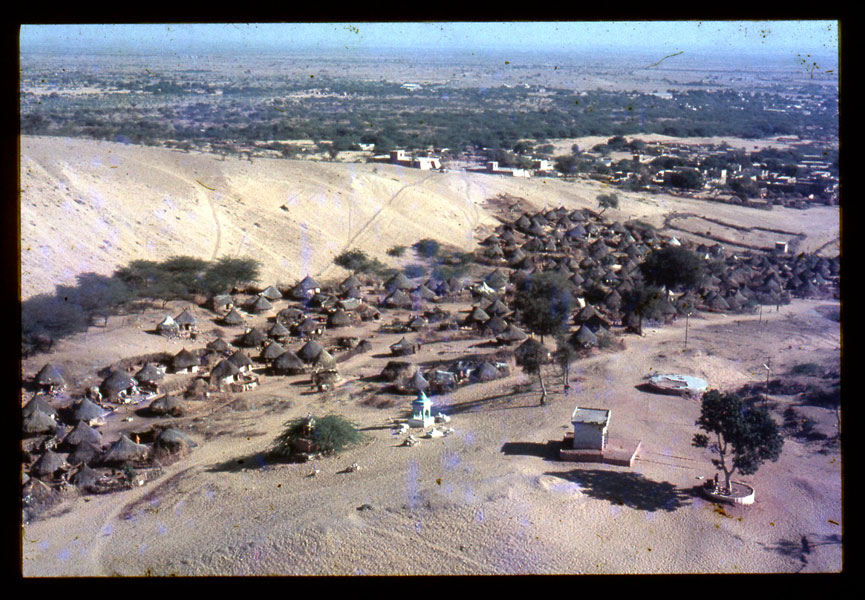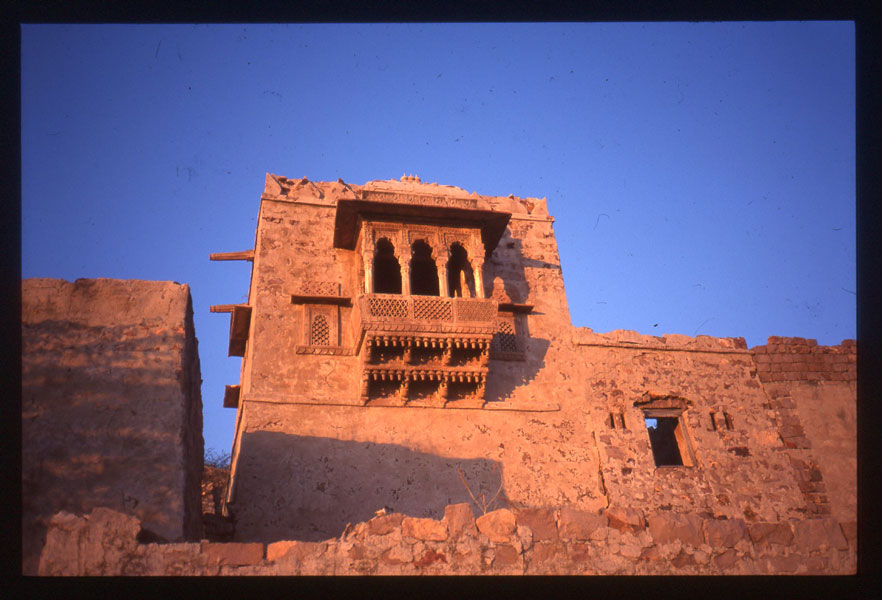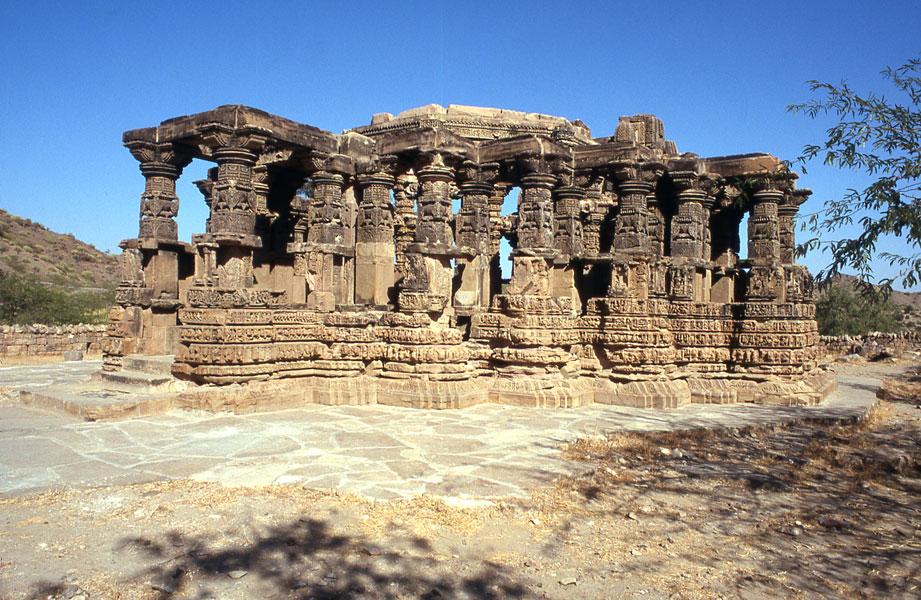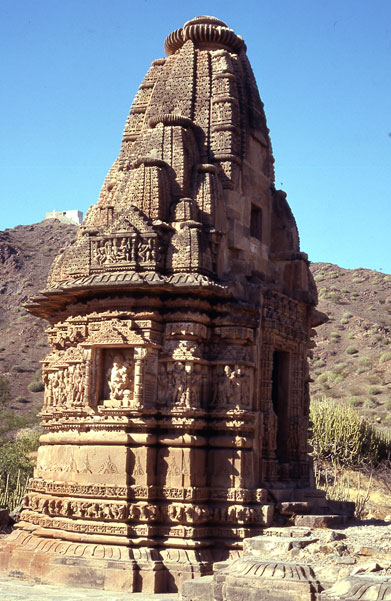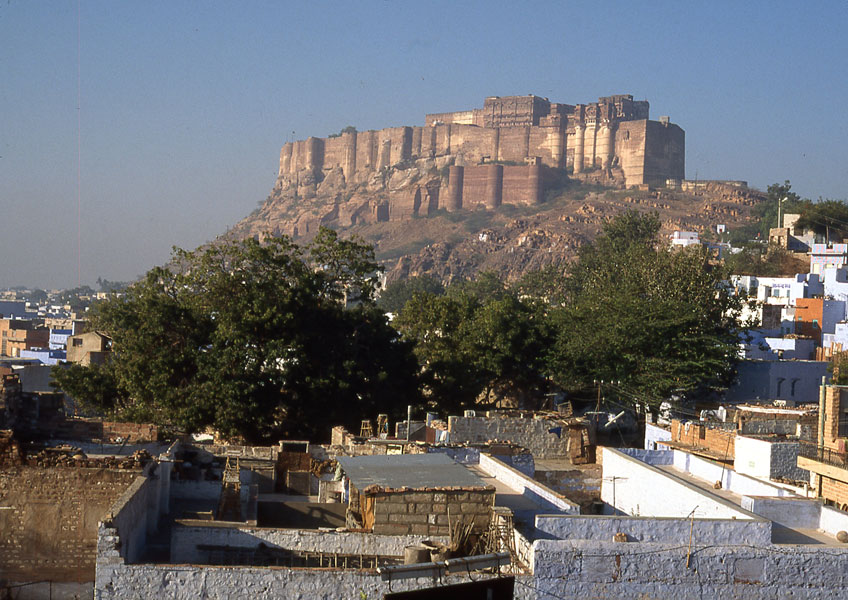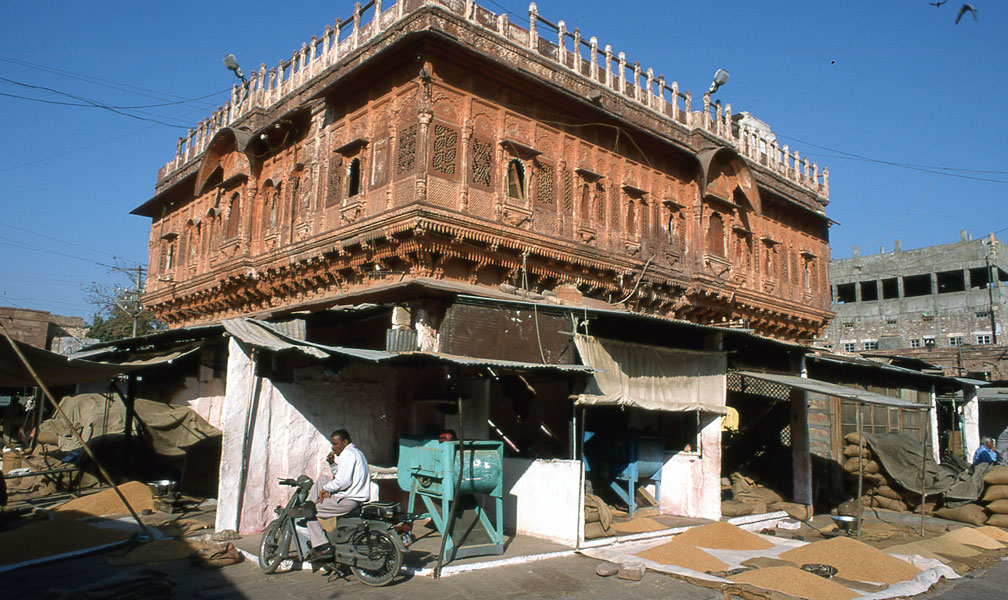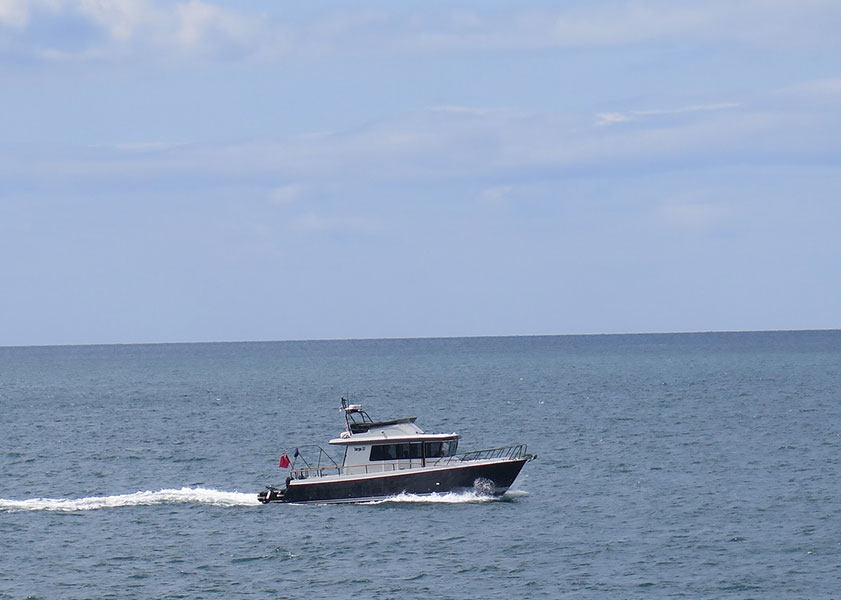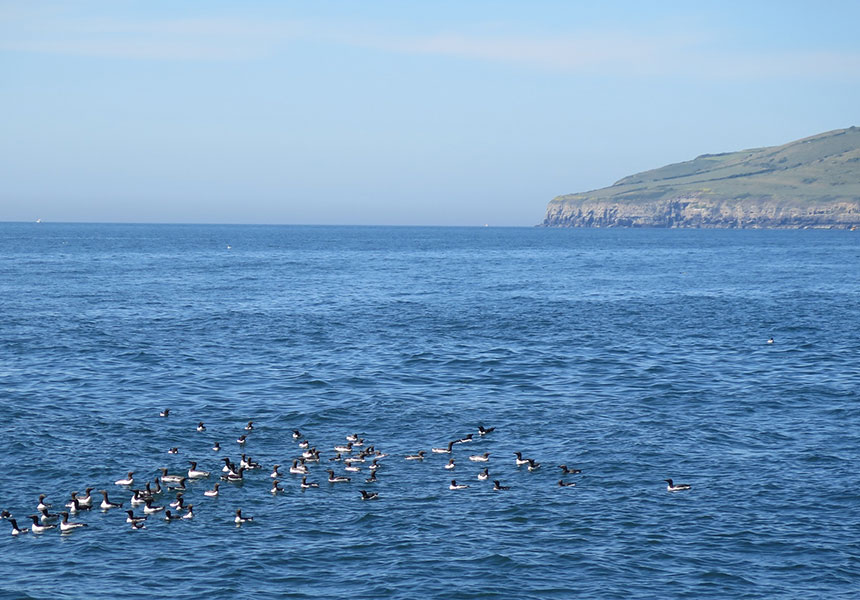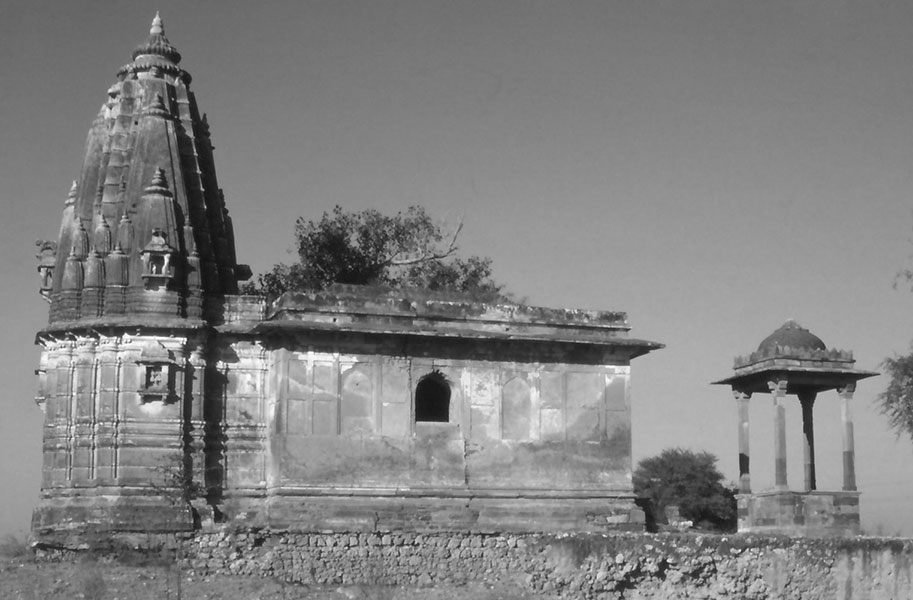61. Ancient Temples & A Scam
60. The Lion And The Lamb
April 7, 2022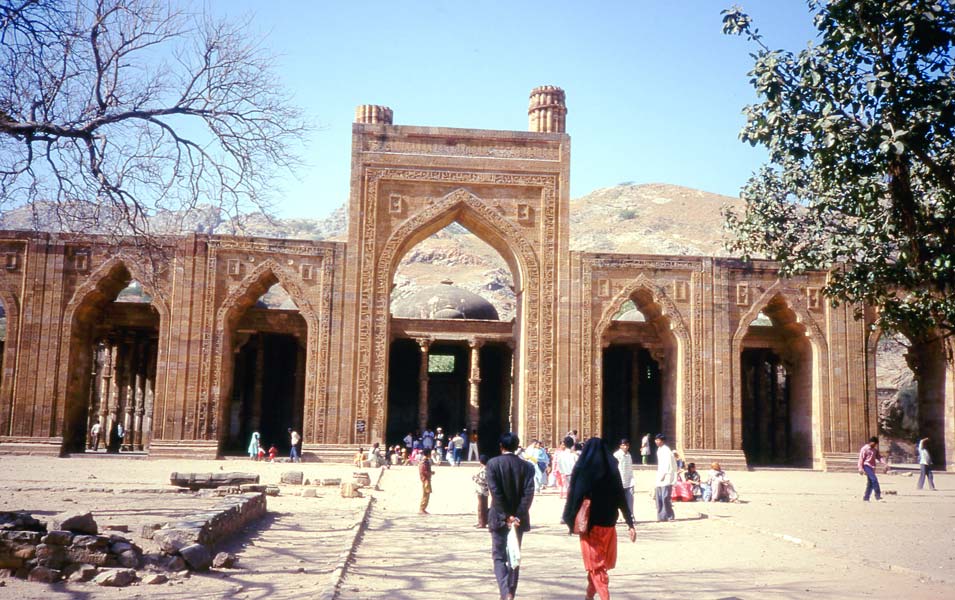
62. Six Hundred Kilometers on Thirty-Six Rupees
June 2, 2022I n the April piece I arrived in Sheo town in the Rajasthan desert. Next day, cycling into a low, rising sun and still feeling rough, soon exhausted, I sat on roadside sand overlooking a refugee camp. One man joined me: ‘We are Hindus, saw few prospects in Islamic Pakistan. During the recent war, when the Indian army occupied our village, we loaded our camels and crossed into India. We are waiting for citizenship before making permanent dwellings to recreate our village.’
The vernacular housing was simple. Each house comprised a mat of brushwood reinforced by a couple of woven bands of pliant branches. That mat, set up on edge, became the wall enclosing a circular space. That was men’s work. The women, taking a mixture of mud and cattle dung, set to plastering over that wall inside and out. It dried coffee-coloured. Men crowned the cylinder with a flattened cone of thatch fashioned from wild broom or, more expensively, straw. The women massaged the plastered floor to a smooth, polished surface, easily swept, then set to decorate the outer wall with white lime designs.
To savour the stora
Each spotless hut formed a house to be stocked with cooking utensils and a pile of hand-made cotton-filled quilts. Life requires little. Most housework was carried out in the fenced compound, held in by a dried thornbush hedge. Here, goats and a couple of cows passed the night. As the family grew the compound expanded to enclose another hut.
Frontier land, this was still desert but with more signs of greenery. The Rains had been more generous here. I cycled past an occasional army encampment. Soldiers waved. At dusk, entering the district town of Barmer, I found a dharamshala room at (1re 50p) 10 pence and collapsed. Was it salt deficiency?
The local Collector, friendly, sent me in a jeep bound for Kiradu, a village with ancient temples, to pay road workers. The driver bumped cheerfully between rocky hills, past red-flowering roira trees, prickly pear cactus. The driver went to pay the men. Kiradu was once prosperous, an inscription, dated 1162, mentioned a king, Someshwar. Little remains but for the vandalised temples, four dedicated to Shiva and one to Vishnu, their masonry richly carved with animals, galloping horsemen, dancers and musicians.
m, an old man enjoying what thrills remain, I set out to reach the clifftop in time for high tide – the wickedest part. It didn’t disappoint. Once up on the limestone ridge, the decision was made for me: it was almost impossible to advance against the violent westerly, so eastwards towards the two pylons of the Measured Mile. There, waves striking a low but sheer stretch of cliff always offer the most dramatic impacts. Clouds of spray drifted up the Wares, obscuring the view and blinding the camera’s lens. On the ground, sheltered amongst low clumps of gorse, a fragile gold and tan yellowhammer crouched. No such tiny, frail bird could confront that wind. So far, I had been alone enjoying the scene, the roughest ever, exhilarated by a roaring, salted wind, the white bursting swells. Occasionally the clouds opened to lance a shaft of sun on the grey-green turmoil.The driver returned with a workman. On payment, each man applied his indelible ink thumbprint to a receipt. This man had returned to the queue and was paid twice. He had good reason: his brother hadn’t turned up that day. It was still forgery. The man was terrified. The driver would to take him back to Barmer police station. It was a hollow threat. After a couple of miles, he set him free to walk back.
Next day, the road was hard work, winding, undulating and often sand covered. Great, flat-topped, steep-sided dunes advance on the seasonal winds; one had completely engulfed an old version of the road. At intervals were wells, each with a crowd of up to 40-50 camels being watered. A team dragged leather bags of water up from the depths. After 3 ½ hours, passing several small villages, I covered 65 km non-stop, crossing a river marked on the map but represented by several hundred metres of sandy track. It must be a wide torrent during a good Monsoon.
At thorn-bush tea house, after sweet, hot milk, I rested before launching into a headwind. Some 20km before Balotra exhaustion hit again. As I sat by the road, cursing at the wind, there were running feet. A man gesticulated towards a lorry: the driver would give me a lift. It was the same Sikh who carried me into Bikaner. Together, we entered Balotra through green fields, dazzling after so much desert, and unloaded rock salt. I saw the town, unremarkable save for its dyeing industry: everywhere colourful cloth was drying or being loaded onto bullock carts. At Pachpadra, some men took the lorry to fetch another load. We sat in a tea hut, the sun setting through ‘windows’ moulded in the mud walls. Darkness brought cold. A little group gathered about a fire in the hut; one burned his hand while shaping a copper bracelet.
The loaded lorry reappeared and we advanced through the stars into Jodhpur city. There he dropped me by a cheap doss house, cots set out beside the street. He bought a bottle of country liquor, pouring some into my water bottle, and we toasted the mother goddess before he drove on. A boy in a vest and short lungi took me to a friend’s (the Magician, he said) restaurant where I ate rice free. Despite bed bugs and a far-too-small charpoy, I slept well.
Next morning, the boy, Ramesh, wanted to show me the town. I stopped at the Post Office to collect money sent from Delhi. Ramesh said his family dealt in gold and silver in Bombay but he was staying with his sister some way from Jodhpur. He showed me a better hotel, where I paid for a room in advance. By the end of our tour, it was clear that he expected to share it since I ‘was like his elder brother’. The more we talked the less I trusted him, his story became increasingly far-fetched but, not wanting to be mean, I succumbed and we went to a film, through which he slept.
Next morning, he wanted me to accompany him to a hospital, where his uncle was a doctor. There, I sat in the waiting room while he looked for him. After ten minutes he was back: he needed to borrow money to show his uncle that he had enough cash to stay in Jodhpur. Only having rs 80, I refused. He pleaded for it. Still I refused. We left, but he seemed genuinely upset that I didn’t trust him. Back at the waiting room, in a grand gesture, I handed him all 80rs. He disappeared down a corridor. Even as he left, I noticed sunlight at its end but waited half an hour before confronting the truth - that corridor led straight to an exit.
I wasted time looking for him. He could pass unnoticed through these streets. At least I’d paid the hotel in advance. All that remained was £2 in sterling and my Timex watch, which everyone wanted to buy. Now, no one wanted to buy sterling at black-market rates and no one wanted the watch.
I quit Jodhpur with 36 rs, that £2. It was 610 km back to Delhi. Let’s be honest: I never again regretted that theft. It became anecdote and enriched the rest of the journey.

